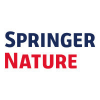Imt 34-2023 Internship: Artificial Intelligence for - Karlsruhe, Deutschland - Springer Nature
Beschreibung
Employer- Helmholtz Association of German Research Centres- Location- Karlsruhe- Closing date- 24 Mar 2024- DisciplinePhysics
Job Type
Internship
Employment - Hours
Part time
Duration
Fixed term
Qualification
PhD
Sector
Academia- You need to sign in or create an account to a job.
- Job Details
- Company
Job Details:
Area of research:
Work placement
Part-Time Suitability:
The position is suitable for part-time employment.
Starting date:
Job description:
Motivation:
Nuclear magnetic resonance (NMR) has become indispensable in various fields of research such as physics, chemistry and medicine.
It provides a non-invasive and non-destructive method for examining a wide range of samples, for example to find out the composition of SARS-CoV-2 at an atomic level.
A homogeneous magnetic field is essential for an accurate and precise result, but this is - among other factors - altered by the sample to be examined.
The magnetic field can be adjusted by so-called "shim coils", but this procedure must, in many times, be carried out manually and requires a lot of time and experience.
This process is called "shimming".AI has been introduced to enhance and speed up the tedious and time-consuming shimming process.
Your task:
Your tasks include (1) scaling existing AI-driven shimming algorithms to higher input and output dimensions. And (2), to explain the DL models' predictions with XAI approaches, such as captum or SHAP values.
You will be part of Prof. Korvink's research group where you can get support from members with expertise in NMR theory, methodology, hardware, and simulation.
- This research center is part of the Helmholtz Association of German Research Centers. With more than 42,000 employees and an annual budget of over € 5 billion, the Helmholtz Association is Germany's largest scientific organisation._
Company:
The Helmholtz Association contributes to solving major challenges to assure the future of our society.
With more than 39,000 people on staff in 18 national research centres, the Helmholtz Association is Germany's largest scientific organization.
The name Helmholtz stands for concerted research in which networks form the key principle behind inquiring thought and action. Concerted research is efficient and flexible.The profile of the Helmholtz Association
The Helmholtz Association performs cutting-edge research which contributes substantially to solving the grand challenges of science, society and industry.
To succeed in meeting these responsibilities, Helmholtz concentrates its work in six research fields:
Energy, Earth and Environment, Health, Key Technologies, Matter, as well as Aeronautics, Space and Transport. Within each of these fields, research programs are developed by our scientists and regularly evaluated by renowned international experts. Their evaluation forms the basis for the programme-oriented funding that is allocated to Helmholtz research.
Within the six research fields, Helmholtz scientists cooperate with each other and with external partners - working across disciplinary, organizational and national borders.
Promoting young academics
Helmholtz scientists, a high-performance infrastructure and modern and efficient research management are the ingredients to the Helmholtz Association's success and global impact.
Its strategy begins with targeted recruitment of highly qualified staff at all levels, followed by comprehensive support aimed at further developing their potential.
Ensuring equal opportunities is an essential element in all talent management activities undertaken by the Helmholtz Association.The Helmholtz Graduate Schools and
Research Schools at almost all Helmholtz Centres provide doctoral students with the general and specific skills and training they need, as well as ample opportunity to network with other working groups. The period following a doctorate is decisive in determining the direction and success of a scientific career. For this reason, we are about to establish Career Centers for postdoctoral researchers in the Helmholtz centres and a mentoring programme for especially gifted PostDocs in order to foster career orientation. This equips young researchers with the skills they need to go on to head a
Helmholtz Young Investigators Group, for example. As a Young Investigator Group leader, junior scientists can independently set up their own group to conduct research in their specialist field.
Within its talent management strategy, the Helmholtz Association pays special attention to the increased recruitment of talented female scientists both from Germany and abroad.
Mehr Jobs von Springer Nature
-
Mitarbeiter (M/w/d) Im Customer Service
Heidelberg, Deutschland - vor 6 Tagen
-
Associate or Senior Editor, Nature Reviews
Heidelberg, Deutschland - vor 4 Wochen
-
Mechatronics Technician
Berlin, Deutschland - vor 2 Wochen
-
Full Professorship
Munich, Deutschland - vor 4 Wochen
-
Junior Professorship with Tenure Track
Berlin, Deutschland - vor 4 Wochen
-
Wiss. Mitarbeiter:in
Dresden, Deutschland - vor 1 Tag

